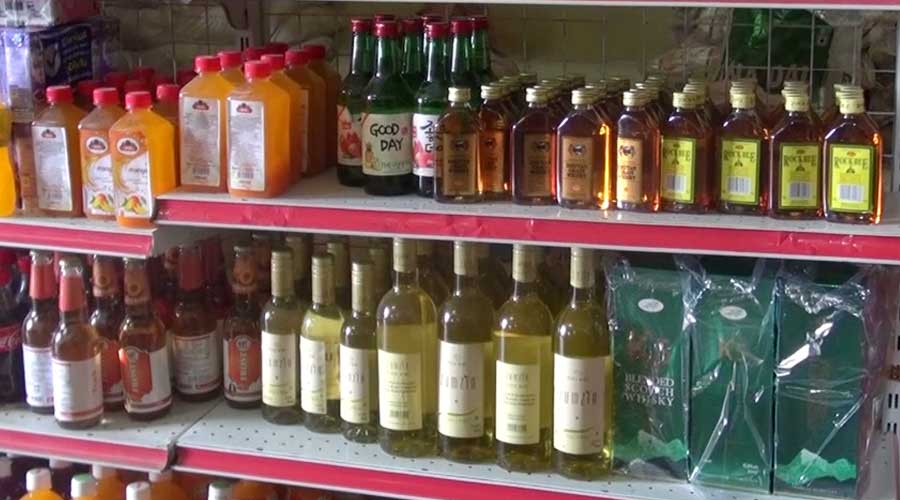
After more than 15 years, some restaurant owners in Kanglung of Trashigang started serving alcohol to their customers openly. This is following the new rules and regulations for the operation of restaurants from the economic affairs ministry in June this year. The new rule allows all licensed restaurants to sell alcohol. The district prohibited selling alcohol within a 5-kilometre radius of the Sherubtse college campus in 2006.
The Dzongkhag, local leaders, college administration and the Kanglung business community agreed to stop the sale of alcohol back in 2006. This was done mainly to discourage students of the college and nearby schools from drinking. There were concerns that they might get influenced due to easy access to alcohol.
However, with the government lifting the moratorium on bar and liquor licenses earlier this year, some restaurant owners in Kanglung also started selling liquor after getting the license.
“The trade official has issued the license, and we have started selling liquor because once the license is issued, whether the gewog allows or not, we have to pay the tax,” said Chezom, a restaurateur in Kanglung.
But local leaders there are unsure about letting the businesses sell alcohol.
“I still could not come to terms with the fact that businesses here are issued licenses to sell alcohol. I even heard that a few people have started selling alcohol after getting their licenses. But I did not say anything to them because we did not get any directive from the government,” said Kanglung Gup Kinzang Dorji.
“Recently we had a meeting with the gewog administration. The gup, Tshogpa and the business community met to discuss this. During the meeting, the gup told us that there is a possibility that the sale of alcohol will be allowed in Kanglung too but told us to wait for the Dzongkhag’s directive,” added Phurpa Thinley, the Tshogpa of Kanglung business group in Trashigang.
According to the residents, the restriction on the sale of alcohol in the area has given rise to the black market and higher prices of alcohol. They reasoned that allowing the sale like in other places can bring down such illegal practices.
“And our government can also earn some revenue through tax collection,” the business Tshogpa added.
“Before there are no liquor shops here, so we either have to travel to Khaling, Khentongmani or Trashigang to get alcohol. It was difficult but we are also worried at the same time as we have college and other students nearby Kanglung,” said Sonam Tshering, from Kanglung Gewog.
If what the district administration says is enforced, then the businesses in Kanglung will have to go back to being alcohol-free and the concerned parents can put their worries to rest. The dzongkhag says the old restriction on the sale of alcohol in Kanglung will not be lifted.
Sonam Darjay, Trashigang
Edited by Sonam









